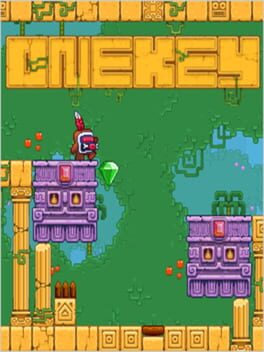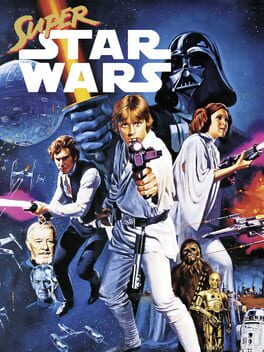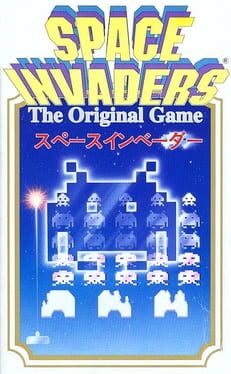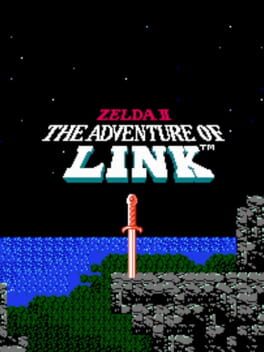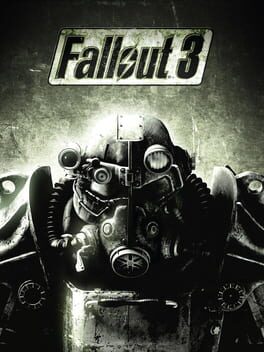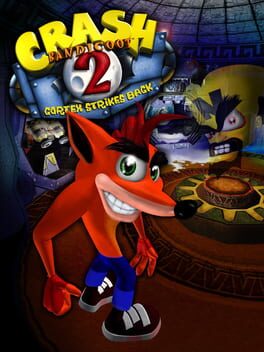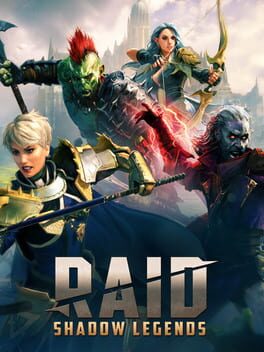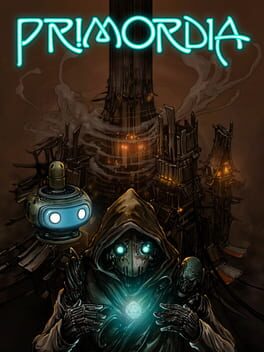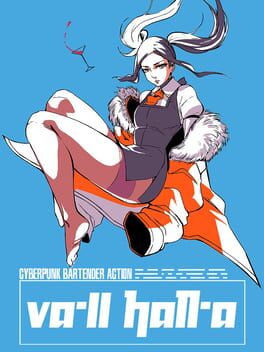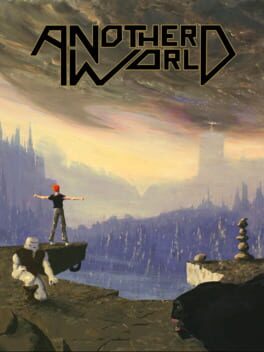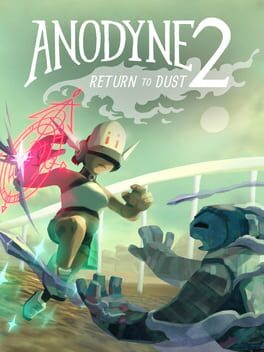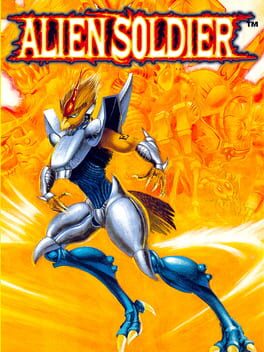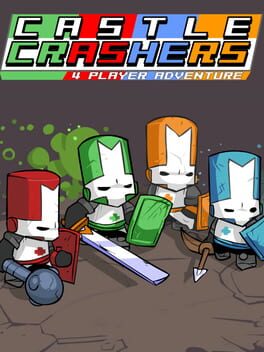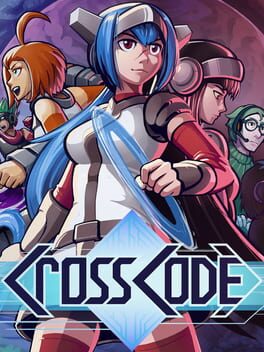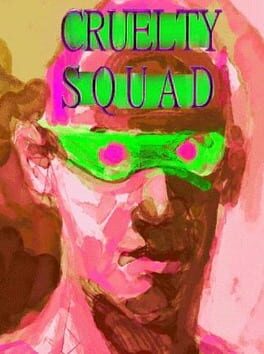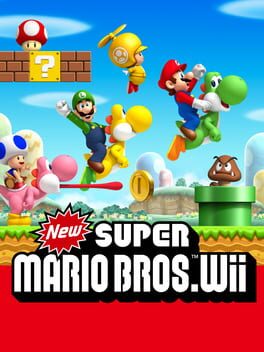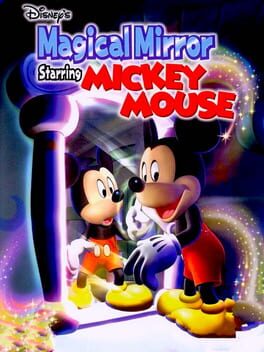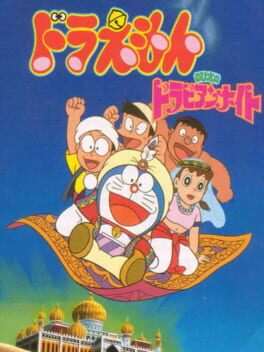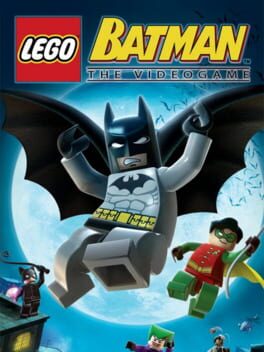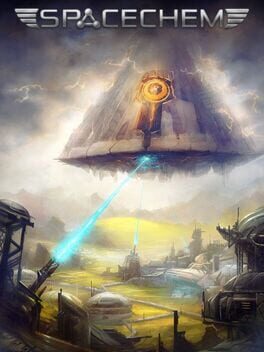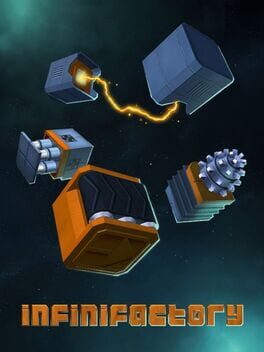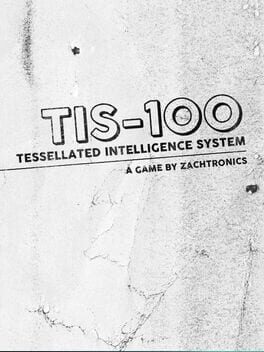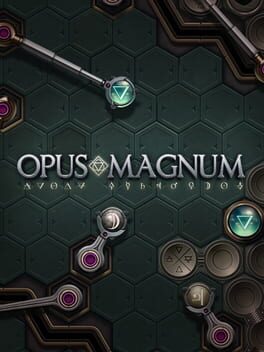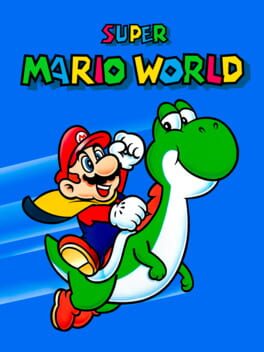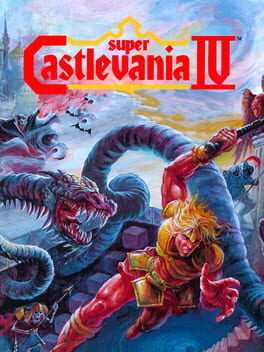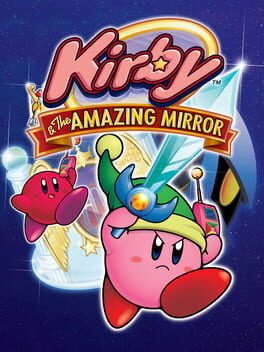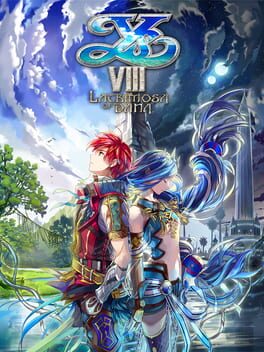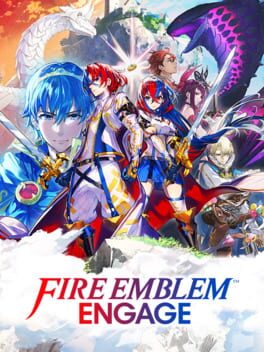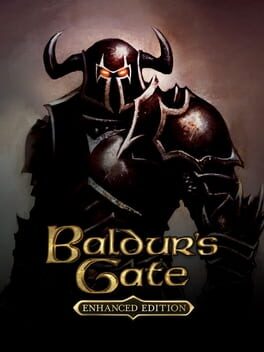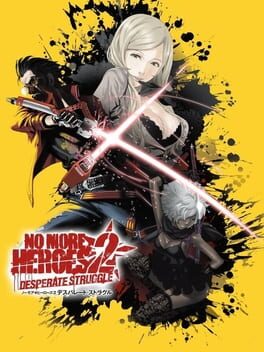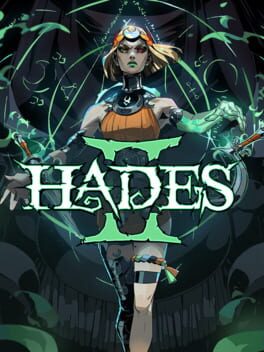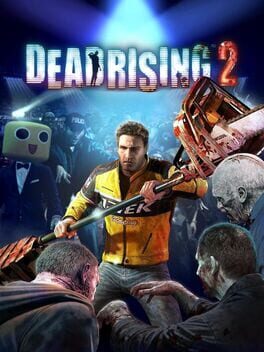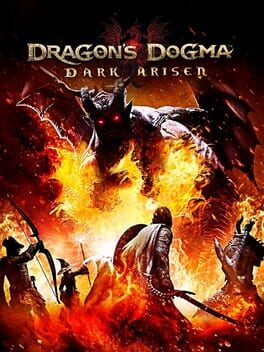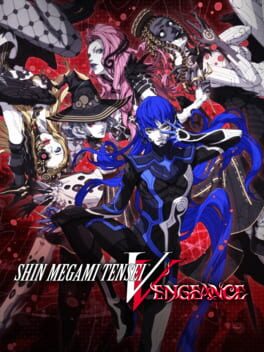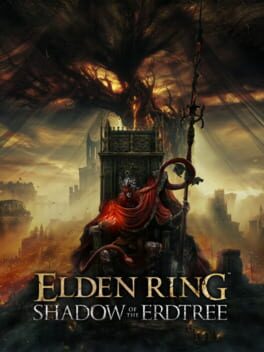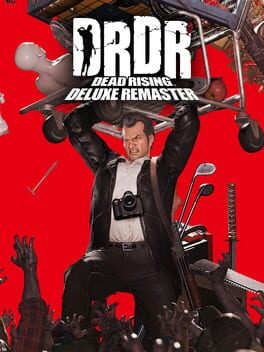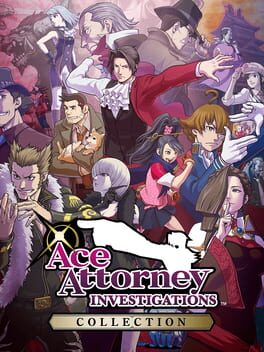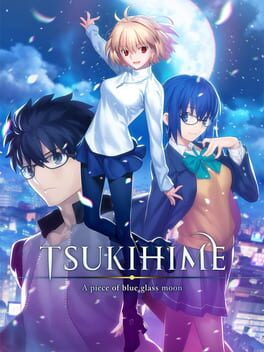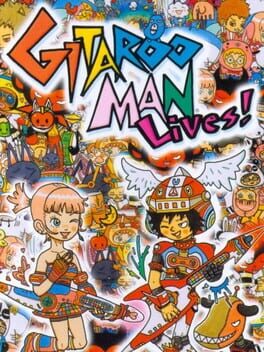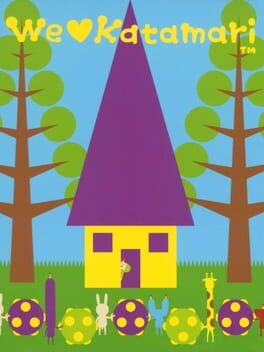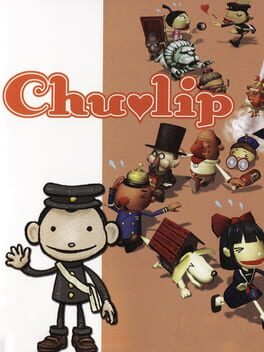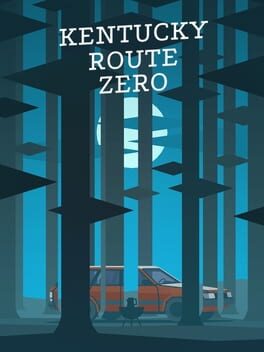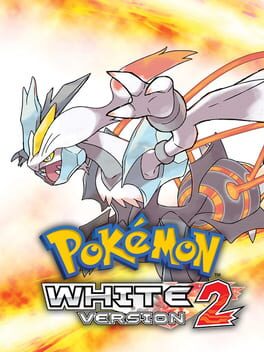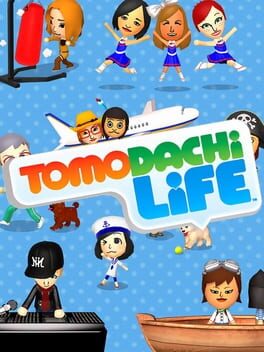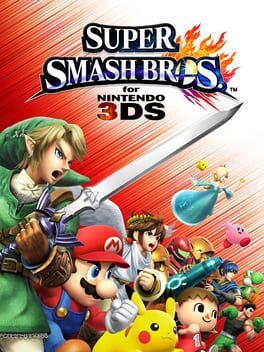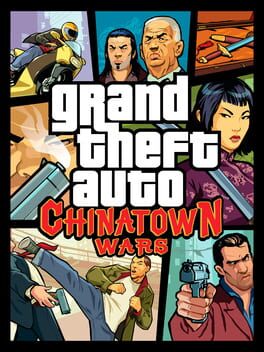Drax
BACKER
21623 reviews liked by Drax
Onekey
2008
Another Lemmings-inspired game. We went two years without anything to that effect and now half of the four most recent games have had it as their core mechanic. Unlike Small Fry, however, Onekey’s core mechanic is that you control the level, moving obstacles, platforms, enemies in such a way that your little guy waddles aimlessly right to the end of the level. However, you can’t pick and choose what you move: everything is bound to the same key, and by activating one thing, you’re gonna be activating things all across the level. Most of the time, this results in timing puzzles — waiting for your character to waddle onto a spring before you yeet him upwards, choosing where to aim a cannon, choosing the right time to start walking into an obstacle — but the broad palette of mechanics on display (the game says “okay, we taught you everything! good luck! and then continues to add new obstacles) allow for other things, too. Sometimes you need to clear a path of enemies so your guy can get through safely. Sometimes you need to do things within a certain amount of button presses before a gate crushes or softlocks you. I especially love the use of the score gems: how they encourage you to go above and beyond and explore parts of the level you don’t otherwise need to, and how you keep them even after you die, so that you’re not ultimately required to get them: at all, nor in one go.
The game… does feel a bit rough to play otherwise. Certain mechanics never feel right to play with: I never got the hang of what the timing was for moving platforms, and trying to use cannons was this Goldilocks-like game of having my aim be slightly off the exact place it needed to be, failing, falling, then having to wait for my guy to slowly waddle back to the cannon so I could have another go. More than anything, I wish there was an option to have your guy go faster. There’s so much waiting around for him to get to where he needs to be, whether that’s waiting for him to come back around so you can try something again, or whether it’s getting back to where you were once you die and get sent back to the beginning of the level. Especially rough given how suddenly that can happen: there aren’t many enemies, and you’ve got a pretty generous health bar, but that doesn’t help when it’s so easy to accidentally crush yourself against a surface and instantly game over. Felt super finicky whether I lived or died. I definitely lean positive in the end: I do like a lot of what the game’s core mechanic is going for (especially with the optional gems), the pixel art is great, and overall it's a fun way to waste an hour or so. In a world where this has more time in the cooker, I could super see this as a standout of Nitrome’s catalogue, but as is, it definitely feels a little bit… wonk(e)y.
The game… does feel a bit rough to play otherwise. Certain mechanics never feel right to play with: I never got the hang of what the timing was for moving platforms, and trying to use cannons was this Goldilocks-like game of having my aim be slightly off the exact place it needed to be, failing, falling, then having to wait for my guy to slowly waddle back to the cannon so I could have another go. More than anything, I wish there was an option to have your guy go faster. There’s so much waiting around for him to get to where he needs to be, whether that’s waiting for him to come back around so you can try something again, or whether it’s getting back to where you were once you die and get sent back to the beginning of the level. Especially rough given how suddenly that can happen: there aren’t many enemies, and you’ve got a pretty generous health bar, but that doesn’t help when it’s so easy to accidentally crush yourself against a surface and instantly game over. Felt super finicky whether I lived or died. I definitely lean positive in the end: I do like a lot of what the game’s core mechanic is going for (especially with the optional gems), the pixel art is great, and overall it's a fun way to waste an hour or so. In a world where this has more time in the cooker, I could super see this as a standout of Nitrome’s catalogue, but as is, it definitely feels a little bit… wonk(e)y.
Super Star Wars
1992
Sadistic difficulty and a complete lack of level design? Yeah, that's probably how Star Wars fans deserve to be treated.
Do you get what I mean if I say this is a game with stages, but not levels? Each stage gets its own tileset and batch of enemies, and then you just move through repetitive areas without any sense of momentum until you hit a boss. You're just moving forward until you're not. The Mode 7 areas are even more direct with this approach, just waiting for you to kill a set amount of enemies in an boundless void until the quota is met.
I first played this at some random family's house that my parents made us visit in like 1997, and I remember beating the Sarlaac and thinking this game was incredible, but each time I've tried to revisit it, it shockingly has never brought back that dumb-kid-brain magic. Anyway, 27 years later, I've finally finished it! The visuals are great and the music is solid, but this is ultimately a lame early-90s side scroller wrapped up in cool IP.
Do you get what I mean if I say this is a game with stages, but not levels? Each stage gets its own tileset and batch of enemies, and then you just move through repetitive areas without any sense of momentum until you hit a boss. You're just moving forward until you're not. The Mode 7 areas are even more direct with this approach, just waiting for you to kill a set amount of enemies in an boundless void until the quota is met.
I first played this at some random family's house that my parents made us visit in like 1997, and I remember beating the Sarlaac and thinking this game was incredible, but each time I've tried to revisit it, it shockingly has never brought back that dumb-kid-brain magic. Anyway, 27 years later, I've finally finished it! The visuals are great and the music is solid, but this is ultimately a lame early-90s side scroller wrapped up in cool IP.
I don't have much to say here, it isn't Space Invaders with boobs or Space Invaders with the highest quality cutscenes you can find, it's plain old Space Invaders. If you like Space Invaders, you'll enjoy this but there is an interesting 2 player mode which I think has unique females representing player 1 and 2. I don't think they're in the SFC version. I sadly couldn't play it due to no CPU support. I don't have much to say on this other than I can't believe it came out so late but it must have pleased some.
Evan's Remains
2020
Evan's Remains in an enjoyable indie game if you know what you will get into. The game combines side-scrolling puzzle platforming sections along with lengthy "visual novel" story-reading sections between characters in between different levels. The story sections take up most of the time during your journey so as long as players are aware of the reading time commitment then they should be fine since the story, while not groundbreaking, it's interesting enough the keep the player engaged all the way to the end all the while uncovering more tidbits of the game's somewhat obscure nature and approach.
Graphics are presented in a retro-style pixel art that looks great and is accompanied by an interesting and colorful setting that varies as the player advances to the different levels by completing the island's monolith puzzles. The platforming controls are accurate and very basic; enough for the player to complete the puzzles effortlessly. Puzzle difficulty ranges from easy to semi-hard; I did not get stuck in any of them although there were a couple that had me scratch my head for a bit but eventually got through them.
The plot and ending are interesting and make this an enjoyable short game.
Graphics are presented in a retro-style pixel art that looks great and is accompanied by an interesting and colorful setting that varies as the player advances to the different levels by completing the island's monolith puzzles. The platforming controls are accurate and very basic; enough for the player to complete the puzzles effortlessly. Puzzle difficulty ranges from easy to semi-hard; I did not get stuck in any of them although there were a couple that had me scratch my head for a bit but eventually got through them.
The plot and ending are interesting and make this an enjoyable short game.
ZIIAOL
2023
Beautiful in that it loves the design language of the original and only seeks to enhance it through that lens. Keeps it the same exact game but takes away only the most unnecessary parts and adds in fun extras. Allowed to me the see the original (I game I already loved) in a new way. Just a beautiful creation... and converting the assembly code... what a labor of love.
This is the type of game we would get all the time if we lived in a utopia.
This is the type of game we would get all the time if we lived in a utopia.
Fallout 3
2008
Loved it at 12, in an era historians now refer to as the year 2 BNV (before New Vegas). It’s okay/boring. I don’t hate it.
A once dream-game which has faded over time, overshadowed and outdone; I can’t in good faith call Fallout 3 a bad video game. It sparked my imagination and hosts plenty of sick ideas (the pip boy radio is unironically one of the best features in a game) but I probably won’t be returning any time soon. One thing that was made very clear to me on this playthrough is that it’s much less of an RPG than it is an open-world FPS adventure with a light morality system. It’s a fairly robust one at that, with a big world and plenty of crap to do.
I just remembered something I wanted to talk about: Bethesda reusing ideas. Gang, if I had a nickel for every Fallout game about a father and child in an East-coast setting with an aesthetic tilted toward American Revolutionary War history and in which the best DLC was set in a New England swamp and featured a mission set in a simulation pod and a finale where you slowly escort Liberty Prime I’d have two nickels. It’s not crazy that it happened twice because Bethesda does this all the time. I kept thinking “oh wow they did this again in _________” throughout my time in FO3. But they probably did it better in ________.
A once dream-game which has faded over time, overshadowed and outdone; I can’t in good faith call Fallout 3 a bad video game. It sparked my imagination and hosts plenty of sick ideas (the pip boy radio is unironically one of the best features in a game) but I probably won’t be returning any time soon. One thing that was made very clear to me on this playthrough is that it’s much less of an RPG than it is an open-world FPS adventure with a light morality system. It’s a fairly robust one at that, with a big world and plenty of crap to do.
I just remembered something I wanted to talk about: Bethesda reusing ideas. Gang, if I had a nickel for every Fallout game about a father and child in an East-coast setting with an aesthetic tilted toward American Revolutionary War history and in which the best DLC was set in a New England swamp and featured a mission set in a simulation pod and a finale where you slowly escort Liberty Prime I’d have two nickels. It’s not crazy that it happened twice because Bethesda does this all the time. I kept thinking “oh wow they did this again in _________” throughout my time in FO3. But they probably did it better in ________.
Made me fully consider just how strongly aesthetic and visual theming plays into my enjoyment of a 3D platformer, because despite this game having mostly better level design, mobility and boss fights, I just can't really bring myself to enjoy this game more than the first Crash game. That's not to say I dislike this game at all however, I find Crash Bandicoot's level design philosophy of essentially translating 2D stages into the 3D plane to be a cool point of separation from the often more open, lenient terrain of some other big titles. Crash 2 delivers more of this appeal to a greater degree in a way that doesn't just become an outright 2D platformer half the time, and in general it's just a much smoother time, and it's this fact, the fact that I think almost everything in this game is designed better than the first, that makes me realise just how important it is for me to feel interested in existing within the space of a game world, above most other things.
The sense of progression and theming in Crash 2 is one of my biggest points of contention with it, especially when compared to how immaculately the first game handled this with its overworld and backgrounds painting a very clear picture of Crash existing in this very real space. In comparison, the hub world with a bunch of portals that lead to very disconnected stages just doesn't hit the same at all, feeling far more akin to just trudging through game levels as opposed to braving the environment with the extremely pronounced intention of reaching the big spooky castle in the distance. This feels especially unfortunate to me when it comes to the individual stage themes, with the first world having you jump from the heart of the jungle, to a snow level, to jet-skiing through some ancient ruins, it's varied for sure, but doesn't really feel at all cohesive. This is rectified in the final few stages that all have a more consistent look and feel to them, but it doesn't really change the fact that I did feel a bit as if I was going through a bunch of entirely disconnected levels for a solid chunk of the game.
That said, I think that the level design itself is better and plays nicely into Crash's enhanced mobility, being a bit less cycle based and far more consistently on a 3D plane, with its 2D sections being mostly relegated to little bonus levels that feels more involved and playful with how to utilise crates, not relying on bottomless pits quite so much either. The mobility you have helps a lot as well, particularly the jump still feeling quite heavy, but not to the point where it could sometimes feel like you were controlling a sack of bricks like in Crash 1, and while I found landing precisely on boxes while in midair was harder in this game, I will chalk that up to not quite being used to this fact, rather than something that the game wasn't doing right. That said, while I love most of what was done here, I am extremely not a fan of the jetpack stages and the fact that you have 3 uses of it in the final area after an entire game of not having anything like this. It feels extremely slow and clunky to use, it's really easy to get stuck on random pieces of level geometry, and there's a very limited sense of variety from the obstacles as well.
I also find the way 100%ing was handled in this game to be a bit iffy, as while some aspects were made much nicer, such as no longer needing to get through a stage deathless to collect a gem, and having a counter at the end of the stage to let you know how many boxes you've hit, the level design itself doesn't feel quite as conducive to grabbing everything as it was in the first game thanks to how death routes are utilised. Most of the idea behind these optional, harder routes for those who have reached a certain point in the stage without dying is really neat, providing an increased challenge you need to overcome if you truly want all the gems, but my issue with this is how breaking the boxes is then treated. In most stages with death routes, breaking every box will require you to complete the death route and then backtrack through the the main part of the stage towards the camera, making it a constant hassle as you now find yourself trying to navigate through things that you can barely see at all and just end up needing to memorise, which was a constant source of frustration and the main reason why I never bothered to go that extra mile after having collected around half of the gems and getting a bit sick of it.
On the whole I can see why people love this so much more than the first game, and in the end I still do think I marginally prefer it as well because most of what Crash 2 does is so, so much better to me, but I'm not quite head over heels for it either and it makes me wish that I liked how it looked and felt as much as I did with Crash 1, because that's the big thing that feels missing. Maybe a replay of this in a few months time will have me warm up to it even more, but for the time being this is distinctly a game I think is very good but have no super strong connection with either unfortunately.
The sense of progression and theming in Crash 2 is one of my biggest points of contention with it, especially when compared to how immaculately the first game handled this with its overworld and backgrounds painting a very clear picture of Crash existing in this very real space. In comparison, the hub world with a bunch of portals that lead to very disconnected stages just doesn't hit the same at all, feeling far more akin to just trudging through game levels as opposed to braving the environment with the extremely pronounced intention of reaching the big spooky castle in the distance. This feels especially unfortunate to me when it comes to the individual stage themes, with the first world having you jump from the heart of the jungle, to a snow level, to jet-skiing through some ancient ruins, it's varied for sure, but doesn't really feel at all cohesive. This is rectified in the final few stages that all have a more consistent look and feel to them, but it doesn't really change the fact that I did feel a bit as if I was going through a bunch of entirely disconnected levels for a solid chunk of the game.
That said, I think that the level design itself is better and plays nicely into Crash's enhanced mobility, being a bit less cycle based and far more consistently on a 3D plane, with its 2D sections being mostly relegated to little bonus levels that feels more involved and playful with how to utilise crates, not relying on bottomless pits quite so much either. The mobility you have helps a lot as well, particularly the jump still feeling quite heavy, but not to the point where it could sometimes feel like you were controlling a sack of bricks like in Crash 1, and while I found landing precisely on boxes while in midair was harder in this game, I will chalk that up to not quite being used to this fact, rather than something that the game wasn't doing right. That said, while I love most of what was done here, I am extremely not a fan of the jetpack stages and the fact that you have 3 uses of it in the final area after an entire game of not having anything like this. It feels extremely slow and clunky to use, it's really easy to get stuck on random pieces of level geometry, and there's a very limited sense of variety from the obstacles as well.
I also find the way 100%ing was handled in this game to be a bit iffy, as while some aspects were made much nicer, such as no longer needing to get through a stage deathless to collect a gem, and having a counter at the end of the stage to let you know how many boxes you've hit, the level design itself doesn't feel quite as conducive to grabbing everything as it was in the first game thanks to how death routes are utilised. Most of the idea behind these optional, harder routes for those who have reached a certain point in the stage without dying is really neat, providing an increased challenge you need to overcome if you truly want all the gems, but my issue with this is how breaking the boxes is then treated. In most stages with death routes, breaking every box will require you to complete the death route and then backtrack through the the main part of the stage towards the camera, making it a constant hassle as you now find yourself trying to navigate through things that you can barely see at all and just end up needing to memorise, which was a constant source of frustration and the main reason why I never bothered to go that extra mile after having collected around half of the gems and getting a bit sick of it.
On the whole I can see why people love this so much more than the first game, and in the end I still do think I marginally prefer it as well because most of what Crash 2 does is so, so much better to me, but I'm not quite head over heels for it either and it makes me wish that I liked how it looked and felt as much as I did with Crash 1, because that's the big thing that feels missing. Maybe a replay of this in a few months time will have me warm up to it even more, but for the time being this is distinctly a game I think is very good but have no super strong connection with either unfortunately.
Raid: Shadow Legends
2018
Primordia
2012
Robots should rhyme more.
Finally got around to checking out the works of Wormwood after years of fondly regarding them from afar. Yeah, they're good.
Primordia in particular has a great cast, locale, and some oblique puzzles I'm particularly fond of. There's even a nifty developer commentary built in to poke through.
Do remember that you can right click on that door.
Finally got around to checking out the works of Wormwood after years of fondly regarding them from afar. Yeah, they're good.
Primordia in particular has a great cast, locale, and some oblique puzzles I'm particularly fond of. There's even a nifty developer commentary built in to poke through.
Do remember that you can right click on that door.
This review contains spoilers
VA-11 HALL-A is a very interesting game indeed. Many friends over the years have begged me to play this one, and even some more recent friends absolutely love this game, so I felt like I owed them this playthrough and review, this one’s for you guys! I was initially not very interested in “VA11” as I’ll say from here on out mostly due to my burnout from visual novels for a good amount of time. I frequented many when I was younger since I was really captivated by their stories, and figured I haven’t delved into one for awhile, so why not this one? I’m really glad I did though, because wow this game is pretty incredible.
I adore the aesthetic of this game! As someone who’s a night owl, VA11 does a phenomenal job at capturing that essence of nighttime. While Glitch City as a setting is rather dystopian and unsafe as I’ll get into more later, the vibes, color palette, and visuals of Glitch City are nothing short of perfection. A lot of how it’s presented is familiar, since for as futuristic of a setting as Glitch City is, a lot of what the game presents is still grounded enough in reality for it to be relatable back to the real world. The bar itself for example still utilizes such a small detail as a typical ventilation system with fans and a jukebox that allow for it to be relatable, while the characters themselves will talk about more fictional concepts in our current world such as nanomachines. It’s this delicate balance of fictional and realistic that allows Glitch City as a setting, as well as VA-11 HALL-A itself to feel like it’s actually something that could exist, but still takes the creative liberties necessary to flesh out and make this World different and worth learning more about. While Glitch City is eternally nighttime, I actually enjoy this aspect because it makes it feel dystopian in the sense of having a lack of sunlight, but it caters to the aesthetic and experience outside the actual mechanics of the World to make it very consistent and enjoyable of an experience.
The world of VA11 wouldn’t be nearly as immersive though without some great characters, and to say VA11 does would be an understatement. Jill, our main protagonist, is one of the bartenders at the VA-11 HALL-A bar, and the game mostly is played through her perspective. Jill is an incredibly relatable character to me because she has a lot of small quirks to her that layer her as a person, and actually play into a lot of her life experiences and outlooks. One example I particularly love to bring up is why Jill is a bartender to begin with. It’s both an escape from her past, but also an affirmation from a specific individual in her life that got her interested in the idea at all I’ll be talking about later. It’s nuanced and sensitively handled in a remarkable fashion that also plays into Jill herself feeling rather unimportant when it comes to her opinions or outlooks in matters, yet will gladly give some insight or share her own life experiences and outlooks vaguely upon the customers who converse with her in the bar itself. I also appreciate Jill’s sense of humor, it’s childish to a tee, but not obnoxious through overuse, it’s balanced correctly. Jill smoking is also another attribute she has that no one else does, which further sets her apart from others, since most decline to smoke with her on breaks, folding in more distinct characterizations for Jill to stand out. but not overshadow the others either via declining her invitation to smoke, or the fact Jill has no physical augmentations to speak of (she does have an implant that gives her stronger resistance to alcohol), unlike many other characters in the game, which helps them stand out on their own. Jill is definitely one of my favorite characters in the game, but it's her relationships with other characters I find even more interesting.
Every character that Jill interacts with within the bar, whether connected to her or not, always presents a new dynamic of Jill’s personality, or helps develop the worldbuilding, which is important to stress, because there’s a lot of characters. Donovan is a great example to start with, as the game also makes him your first regular when you start the game. Donovan is the owner and CEO of “The Augmented Eye” a news site you can actually visit in-game before going into work every day to get news updates on the World, which helps with worldbuilding. This ties back into Donovan, while he does have his own personal matters he'll go into every now and again, he’s more of a launching pad to establish the world beyond the scope of the game, and does nothing but further enrich my appreciation and enjoyment of Glitch City. I also appreciate how Donovan ties into a few characters as well that also visit the bar; they're not exactly integral to the story, though it is nice to see the effects of their bar visits over time through the perspective of other patrons, such as Kim. Kira Miki, an idol, is another example of a character who has a blog you can read before going into work that helps establish her before she even enters the bar, and once again just helps this World feel a bit more lively.
Alma might just be my favorite supporting character in the whole game. Alma and Jill have a very relaxed, yet intimate relationship where they pretty much feel almost like sisters. I deeply appreciate how their chemistry felt very natural and fun throughout the game. With all of Alma’s romantic pursuits in stark contrast to Jill’s… indifference mostly, it creates a contrast that is definitely shared among real friendships, despite the large differences in priorities, they still come together. I especially enjoyed one particular moment in the game where Jill is at her lowest, and Alma single-handedly is able to perk her up by just talking to her and making her a drink for Jill, allowing Jill to be the patron able to vent about their current thoughts and problems, and Alma being the bartender. It’s my favorite moment in the game because Jill is finally able to be especially vulnerable, and it makes the most sense it’d be towards Alma. Alma is just very supportive and down to Earth despite her disposition at times, it made me appreciate Alma a lot, and gave her so much depth just from interacting with Jill, and vice versa, it’s honestly an essential component that makes this game so special to begin with.
Dorothy is a rather controversial character to many, but to me she felt handled rather well, with maybe a small exception when it comes to her work. Dorothy is nothing short of a sweetheart who really cares about her friends, even if she isn’t exactly filtered in her speech, or topics of choice. This doesn’t detract from her character though, especially when she has her existential crisis later in the game. Considering she’s not human, but a “Lilim” , a humanoid robot essentially, this sort of moment really hits home in a lot of ways. There’s been times in many of our lives where we didn’t feel human in a metaphorical sense, whether that’s through existentialism, how we handle certain situations or emotions, the whole nine yards. For Dorothy it’s literal which is something I love, being able to take metaphors and make them literal or physically manifest them in some sort of tangible way through the medium of fictional writing, and this is a prime example. It’s even more complex when you factor in Dorothy thinking and entertaining the idea she is merely a replacement for her guardian’s daughter, which feeds into that feeling of not being a real person, or being looked at as herself. It’s amazing as well how earlier on in the game, this is foreshadowed when she talks about being hired to act as someone’s daughter for a whole day. I feel in that moment, a lot of these insecurities inside Dorothy really developed and picked up steam, and it’s small moments like that in hindsight that go from insignificant small talk, to unparalleled, and delicately crafted writing. Jill’s response also resonated with me a lot, about how even a fictional story will make you feel for its characters and world, to get so immersed into something it moves you so deeply. I found myself feeling that exact way about this game, and that is the most real feeling anyone can ever experience, and I loved the outcome of Dorothy pouring the drink Jill made for her on her head to “feel something she made”. In that moment, Dorothy finds her answer, and that conclusion was just utterly fantastic and very moving, I loved it. Dorothy honestly surprised me, and I do believe the controversy surrounding her, while valid, is a bit overblown since I found her entire story and character arc in the game incredibly profound and relatable in a lot of ways. It’s really interesting how the robot might just be the most relatable character here to many, she sort of transcends her own concept, which is a really smart idea, and I think it was executed beautifully. Yes, I could do without some of the innuendo’s and general sex talk, but other than that? A great character to me personally.
While I don’t want to go into every character, I really enjoyed Gil for being a rather laid-back guy with a rather rocky history that’s gotten his life together somewhat, and for some reason being a ”fuckboy”. Dana is a very caring boss who tends to get into odd scenarios or is always doing something weird or goofy, and seemingly has connections to everyone. I especially liked her for drinking and talking to Jill at her apartment, and it makes sense Jill likes Dana as much as she does because they have a very good relationship with the boss employee dynamic being pretty much nonexistent for them just being good friends who coincidentally work together. Sei is a rather remarkable character since she helps develop the world a lot by being a “White Knight” which would be the law enforcement in Glitch City. Throughout the game, there’s a lot of foreshadowing about a civil war brewing between the common people and White Knights that culminates in an event where the Apollo Bank is attacked. Sei ends up trapped inside the bank for three days, and upon returning to the bar after the incident, is covered in bandages. This was a really important setup because the dystopian-like nature of Glitch City is showcased in a tangible manner that even a regular at the bar could be swept up into conflict or getting hurt or dying, never to return. Sei was rather lucky in this regard, and developed her character a lot, but I really appreciate how much she brought to the table besides being a good character. Stella is an equally interesting character, having been friends with Sei since they were kids. Stella had been taken as a hostage by a rogue white knight, in which Sei tried to protect her, but was ultimately severely injured, only for a different white knight to rescue them both, this prompted Sei to become a white knight herself, and Stella losing her eye, which she’s very self-conscious about. Though it’s entirely representative of that event being incredibly important, as that was what made Stella and Sei inseparable friends, and allowed Sei to find what she wanted to do with her life. They get along really well, and their chemistry and care for each other is blatantly obvious, especially during the Apollo Bank incident where Stella is nothing but restless. Jill is able to calm her down though, which shows maybe Stella and Jill could also have a very meaningful friendship in the future, much like Jill with Alma, or Stella with Sei. Stella is also rich and rather high-class overall, yet she enjoys VA-11 HALL-A enough to keep coming back. It’s that sort of nuance in the character writing I really love in this game, also helps Stella is one of my favorite characters.
Last character I do want to talk about though is Gaby. Gaby is sort of a ghost of the past for Jill, even if she doesn’t recognize her right away. Gaby has nothing but contempt for Jill due to her breaking up with her sister, Lenore, and shortly after dying due to nano-machine rejection. Jill has no idea this has even occurred, and it’s even worse when she finds out since she bartends because Lenore told her she was good at it. So even if they were separated, her influence on Jill is still always felt to some extent. Hearing sudden news of someone you were intimate with passed away long before you even found out is incredibly painful and this part of the game was my favorite, Jill, justifiably so, is shattered by this news, yet she continues to work despite her mourning because she sacrificed everything to be there, so at the very least, she won’t let this go. It’s a really profound message, even if it’s a bit unrealistic to me, since personally I’d be so stricken with grief to not even consider working, but it makes Jill all the more endearing for doing so, and with the help of her friends, she’s able to overcome her slump and eventually talk to Gaby. Gaby is definitely still a child, and did overemphasis Lenore’s condition getting worse after Jill left, but this is a very accurate representation of grief to find something, anything to blame as to why things happen the way they do. Once Jill and Gaby reconcile though, Gaby is a very cheerful girl who is always smiling and truly values hanging out with Jill and her friends. I really appreciate Gaby’s inclusion though because Jill has hinted about her previous relationships throughout the game, and I was happily surprised to see that explored more through Gaby. It makes sense Jill’s most important former relationship would find a way to be recontextualized within the game, and it’s very well done. VA11 is very much a personal game about specific characters in a dystopian city or world, but only focuses on the personal stories of the characters themselves. So while things like nanomachines, and augmentation do very much exist, they only enter the narrative when it’s important, which helps maintain that more personal little slice of life storytelling the game is going for, especially with Gaby and Jill. While I don’t think Gaby is the best character in the game, really she just serves to help develop Jill far past something like her relatability or oddball tendencies. We get to see Jill rather vulnerable, cynical, and unhappy, which leads to some of the best moments in the game like with Dana being a very caring boss to Jill, and Alma being one of the best friends you could ask for in that given situation.
Actual gameplay of VA-11 HALL-A is relatively simple and not too engaging overall. Someone asks for a drink and you make it, that’s the basic gist. The game does attempt to make it a bit puzzle-like by having patrons ask for something specific that you need to figure out on your own, which I like. One example I love is when Dorothy is upset and asks for a drink she normally doesn’t request, but if you’re keen on that and give her the drink she loves instead, you get some new dialogue and her ending. Small things like that make the gameplay relevant to the characters in a meaningful manner without being too cryptic for people to figure out. It's a delicate balance, but I think it works well here. There’s another mechanic where when a patron asks for something vague, you could spike their drink with extra alcohol to get them drunk which will present entirely new dialogue and events to happen. I only got this to happen twice in my playthrough, but it was a bit entertaining. Through my research, I learned it was possible to get many of the patrons drunk, and they have some incredible dialogue that grants more context for their personalities and lives I deeply appreciate even if I never saw them in-game.. I can’t comment too much further on gameplay simply because there’s not much to it. Before you go to work, you can browse the web on Jill’s phone to gain further context on the World of Glitch City, you can also buy things Jill wants so she’s less distracted at work. There’s also a rent fee you need to pay every month or Jill will be evicted, so you need to balance funds with things Jill wants. If you want to customize her room or buy other items, you certainly can, just be aware of the consequences of doing so. With that said, there’s actually a plethora of stuff you can buy, from new songs, to actual minigames that, while fun, aren’t anything too compelling to talk about, but it’s a nice addition to the game. Overall, the gameplay isn’t the reason you play VA-11 HALL-A, but it has enough there to challenge you on if you’re paying attention or not, and has a few fun distractions.
VA11 has a remarkable soundtrack that helps this game come to life with its setting. Safe Haven being emblematic of that comfortable home feel before going into work, and is one of my favorite songs in the game. It’s incredibly calming, and just has a nice sound to it. My absolute favorite song though is Every Day Is Night this song is incredibly upbeat but feels so enveloped with that “night life” feel, it really works for the game and was the song I used the most. VA-11 HALL-A has a large assortment of songs you get to pick by using the jukebox in the bar. While not every song might fit the current topic of discussion or context, I loved being able to pick my favorite songs and tailor my experience a bit more in that regard. I did listen to every song the game had available, and even bought the optional songs later on just to listen to them and was not disappointed. OST was a major highlight for sure! Some of my other favorite songs were: Dusk, Spirit Potion, and Snowfall.
VA-11 HALL-A was nothing short of an incredible experience. I loved and adored so many of the characters for their relatable writing, quirks, and overall personalities. While some I definitely enjoyed way more than others, I can safely say this game does a phenomenal job with them in many meaningful ways. The setting is amazing with just the right amount of world building that seeps into the personal lives we follow in a both compelling and profound way that enforces the idea that not everything outside what we see is exactly ideal, and that characters we may like could find themselves in dangerous situations. The soundtrack is amazing, and the gameplay, while not the focus really, does a good job at quizzing you to see if you’re paying attention to the writing or your patrons, such as their preferences in drinks, and Jill’s personal thoughts before choosing what to serve. With a few minigames and some money management on the side, VA-11 HALL-A is a very well-crafted game well worth your time! This was my first spoiler-tagged review simply due to the nature of games like VN’s, it’d basically be impossible for me to discuss the game without spoiling something. This was a very long review in the making for the simple fact that I wasn’t satisfied with how it always came out. I really wanted to hit home the writing and characters correctly for this one, so I’m sorry it took me longer than usual to get this review out. Thank you all for your patience and reading my work, it means a lot to me. Next up is Donkey Kong Country 2! Hope you all stay tuned for that. Thank you all for reading, see you in the next one.
I adore the aesthetic of this game! As someone who’s a night owl, VA11 does a phenomenal job at capturing that essence of nighttime. While Glitch City as a setting is rather dystopian and unsafe as I’ll get into more later, the vibes, color palette, and visuals of Glitch City are nothing short of perfection. A lot of how it’s presented is familiar, since for as futuristic of a setting as Glitch City is, a lot of what the game presents is still grounded enough in reality for it to be relatable back to the real world. The bar itself for example still utilizes such a small detail as a typical ventilation system with fans and a jukebox that allow for it to be relatable, while the characters themselves will talk about more fictional concepts in our current world such as nanomachines. It’s this delicate balance of fictional and realistic that allows Glitch City as a setting, as well as VA-11 HALL-A itself to feel like it’s actually something that could exist, but still takes the creative liberties necessary to flesh out and make this World different and worth learning more about. While Glitch City is eternally nighttime, I actually enjoy this aspect because it makes it feel dystopian in the sense of having a lack of sunlight, but it caters to the aesthetic and experience outside the actual mechanics of the World to make it very consistent and enjoyable of an experience.
The world of VA11 wouldn’t be nearly as immersive though without some great characters, and to say VA11 does would be an understatement. Jill, our main protagonist, is one of the bartenders at the VA-11 HALL-A bar, and the game mostly is played through her perspective. Jill is an incredibly relatable character to me because she has a lot of small quirks to her that layer her as a person, and actually play into a lot of her life experiences and outlooks. One example I particularly love to bring up is why Jill is a bartender to begin with. It’s both an escape from her past, but also an affirmation from a specific individual in her life that got her interested in the idea at all I’ll be talking about later. It’s nuanced and sensitively handled in a remarkable fashion that also plays into Jill herself feeling rather unimportant when it comes to her opinions or outlooks in matters, yet will gladly give some insight or share her own life experiences and outlooks vaguely upon the customers who converse with her in the bar itself. I also appreciate Jill’s sense of humor, it’s childish to a tee, but not obnoxious through overuse, it’s balanced correctly. Jill smoking is also another attribute she has that no one else does, which further sets her apart from others, since most decline to smoke with her on breaks, folding in more distinct characterizations for Jill to stand out. but not overshadow the others either via declining her invitation to smoke, or the fact Jill has no physical augmentations to speak of (she does have an implant that gives her stronger resistance to alcohol), unlike many other characters in the game, which helps them stand out on their own. Jill is definitely one of my favorite characters in the game, but it's her relationships with other characters I find even more interesting.
Every character that Jill interacts with within the bar, whether connected to her or not, always presents a new dynamic of Jill’s personality, or helps develop the worldbuilding, which is important to stress, because there’s a lot of characters. Donovan is a great example to start with, as the game also makes him your first regular when you start the game. Donovan is the owner and CEO of “The Augmented Eye” a news site you can actually visit in-game before going into work every day to get news updates on the World, which helps with worldbuilding. This ties back into Donovan, while he does have his own personal matters he'll go into every now and again, he’s more of a launching pad to establish the world beyond the scope of the game, and does nothing but further enrich my appreciation and enjoyment of Glitch City. I also appreciate how Donovan ties into a few characters as well that also visit the bar; they're not exactly integral to the story, though it is nice to see the effects of their bar visits over time through the perspective of other patrons, such as Kim. Kira Miki, an idol, is another example of a character who has a blog you can read before going into work that helps establish her before she even enters the bar, and once again just helps this World feel a bit more lively.
Alma might just be my favorite supporting character in the whole game. Alma and Jill have a very relaxed, yet intimate relationship where they pretty much feel almost like sisters. I deeply appreciate how their chemistry felt very natural and fun throughout the game. With all of Alma’s romantic pursuits in stark contrast to Jill’s… indifference mostly, it creates a contrast that is definitely shared among real friendships, despite the large differences in priorities, they still come together. I especially enjoyed one particular moment in the game where Jill is at her lowest, and Alma single-handedly is able to perk her up by just talking to her and making her a drink for Jill, allowing Jill to be the patron able to vent about their current thoughts and problems, and Alma being the bartender. It’s my favorite moment in the game because Jill is finally able to be especially vulnerable, and it makes the most sense it’d be towards Alma. Alma is just very supportive and down to Earth despite her disposition at times, it made me appreciate Alma a lot, and gave her so much depth just from interacting with Jill, and vice versa, it’s honestly an essential component that makes this game so special to begin with.
Dorothy is a rather controversial character to many, but to me she felt handled rather well, with maybe a small exception when it comes to her work. Dorothy is nothing short of a sweetheart who really cares about her friends, even if she isn’t exactly filtered in her speech, or topics of choice. This doesn’t detract from her character though, especially when she has her existential crisis later in the game. Considering she’s not human, but a “Lilim” , a humanoid robot essentially, this sort of moment really hits home in a lot of ways. There’s been times in many of our lives where we didn’t feel human in a metaphorical sense, whether that’s through existentialism, how we handle certain situations or emotions, the whole nine yards. For Dorothy it’s literal which is something I love, being able to take metaphors and make them literal or physically manifest them in some sort of tangible way through the medium of fictional writing, and this is a prime example. It’s even more complex when you factor in Dorothy thinking and entertaining the idea she is merely a replacement for her guardian’s daughter, which feeds into that feeling of not being a real person, or being looked at as herself. It’s amazing as well how earlier on in the game, this is foreshadowed when she talks about being hired to act as someone’s daughter for a whole day. I feel in that moment, a lot of these insecurities inside Dorothy really developed and picked up steam, and it’s small moments like that in hindsight that go from insignificant small talk, to unparalleled, and delicately crafted writing. Jill’s response also resonated with me a lot, about how even a fictional story will make you feel for its characters and world, to get so immersed into something it moves you so deeply. I found myself feeling that exact way about this game, and that is the most real feeling anyone can ever experience, and I loved the outcome of Dorothy pouring the drink Jill made for her on her head to “feel something she made”. In that moment, Dorothy finds her answer, and that conclusion was just utterly fantastic and very moving, I loved it. Dorothy honestly surprised me, and I do believe the controversy surrounding her, while valid, is a bit overblown since I found her entire story and character arc in the game incredibly profound and relatable in a lot of ways. It’s really interesting how the robot might just be the most relatable character here to many, she sort of transcends her own concept, which is a really smart idea, and I think it was executed beautifully. Yes, I could do without some of the innuendo’s and general sex talk, but other than that? A great character to me personally.
While I don’t want to go into every character, I really enjoyed Gil for being a rather laid-back guy with a rather rocky history that’s gotten his life together somewhat, and for some reason being a ”fuckboy”. Dana is a very caring boss who tends to get into odd scenarios or is always doing something weird or goofy, and seemingly has connections to everyone. I especially liked her for drinking and talking to Jill at her apartment, and it makes sense Jill likes Dana as much as she does because they have a very good relationship with the boss employee dynamic being pretty much nonexistent for them just being good friends who coincidentally work together. Sei is a rather remarkable character since she helps develop the world a lot by being a “White Knight” which would be the law enforcement in Glitch City. Throughout the game, there’s a lot of foreshadowing about a civil war brewing between the common people and White Knights that culminates in an event where the Apollo Bank is attacked. Sei ends up trapped inside the bank for three days, and upon returning to the bar after the incident, is covered in bandages. This was a really important setup because the dystopian-like nature of Glitch City is showcased in a tangible manner that even a regular at the bar could be swept up into conflict or getting hurt or dying, never to return. Sei was rather lucky in this regard, and developed her character a lot, but I really appreciate how much she brought to the table besides being a good character. Stella is an equally interesting character, having been friends with Sei since they were kids. Stella had been taken as a hostage by a rogue white knight, in which Sei tried to protect her, but was ultimately severely injured, only for a different white knight to rescue them both, this prompted Sei to become a white knight herself, and Stella losing her eye, which she’s very self-conscious about. Though it’s entirely representative of that event being incredibly important, as that was what made Stella and Sei inseparable friends, and allowed Sei to find what she wanted to do with her life. They get along really well, and their chemistry and care for each other is blatantly obvious, especially during the Apollo Bank incident where Stella is nothing but restless. Jill is able to calm her down though, which shows maybe Stella and Jill could also have a very meaningful friendship in the future, much like Jill with Alma, or Stella with Sei. Stella is also rich and rather high-class overall, yet she enjoys VA-11 HALL-A enough to keep coming back. It’s that sort of nuance in the character writing I really love in this game, also helps Stella is one of my favorite characters.
Last character I do want to talk about though is Gaby. Gaby is sort of a ghost of the past for Jill, even if she doesn’t recognize her right away. Gaby has nothing but contempt for Jill due to her breaking up with her sister, Lenore, and shortly after dying due to nano-machine rejection. Jill has no idea this has even occurred, and it’s even worse when she finds out since she bartends because Lenore told her she was good at it. So even if they were separated, her influence on Jill is still always felt to some extent. Hearing sudden news of someone you were intimate with passed away long before you even found out is incredibly painful and this part of the game was my favorite, Jill, justifiably so, is shattered by this news, yet she continues to work despite her mourning because she sacrificed everything to be there, so at the very least, she won’t let this go. It’s a really profound message, even if it’s a bit unrealistic to me, since personally I’d be so stricken with grief to not even consider working, but it makes Jill all the more endearing for doing so, and with the help of her friends, she’s able to overcome her slump and eventually talk to Gaby. Gaby is definitely still a child, and did overemphasis Lenore’s condition getting worse after Jill left, but this is a very accurate representation of grief to find something, anything to blame as to why things happen the way they do. Once Jill and Gaby reconcile though, Gaby is a very cheerful girl who is always smiling and truly values hanging out with Jill and her friends. I really appreciate Gaby’s inclusion though because Jill has hinted about her previous relationships throughout the game, and I was happily surprised to see that explored more through Gaby. It makes sense Jill’s most important former relationship would find a way to be recontextualized within the game, and it’s very well done. VA11 is very much a personal game about specific characters in a dystopian city or world, but only focuses on the personal stories of the characters themselves. So while things like nanomachines, and augmentation do very much exist, they only enter the narrative when it’s important, which helps maintain that more personal little slice of life storytelling the game is going for, especially with Gaby and Jill. While I don’t think Gaby is the best character in the game, really she just serves to help develop Jill far past something like her relatability or oddball tendencies. We get to see Jill rather vulnerable, cynical, and unhappy, which leads to some of the best moments in the game like with Dana being a very caring boss to Jill, and Alma being one of the best friends you could ask for in that given situation.
Actual gameplay of VA-11 HALL-A is relatively simple and not too engaging overall. Someone asks for a drink and you make it, that’s the basic gist. The game does attempt to make it a bit puzzle-like by having patrons ask for something specific that you need to figure out on your own, which I like. One example I love is when Dorothy is upset and asks for a drink she normally doesn’t request, but if you’re keen on that and give her the drink she loves instead, you get some new dialogue and her ending. Small things like that make the gameplay relevant to the characters in a meaningful manner without being too cryptic for people to figure out. It's a delicate balance, but I think it works well here. There’s another mechanic where when a patron asks for something vague, you could spike their drink with extra alcohol to get them drunk which will present entirely new dialogue and events to happen. I only got this to happen twice in my playthrough, but it was a bit entertaining. Through my research, I learned it was possible to get many of the patrons drunk, and they have some incredible dialogue that grants more context for their personalities and lives I deeply appreciate even if I never saw them in-game.. I can’t comment too much further on gameplay simply because there’s not much to it. Before you go to work, you can browse the web on Jill’s phone to gain further context on the World of Glitch City, you can also buy things Jill wants so she’s less distracted at work. There’s also a rent fee you need to pay every month or Jill will be evicted, so you need to balance funds with things Jill wants. If you want to customize her room or buy other items, you certainly can, just be aware of the consequences of doing so. With that said, there’s actually a plethora of stuff you can buy, from new songs, to actual minigames that, while fun, aren’t anything too compelling to talk about, but it’s a nice addition to the game. Overall, the gameplay isn’t the reason you play VA-11 HALL-A, but it has enough there to challenge you on if you’re paying attention or not, and has a few fun distractions.
VA11 has a remarkable soundtrack that helps this game come to life with its setting. Safe Haven being emblematic of that comfortable home feel before going into work, and is one of my favorite songs in the game. It’s incredibly calming, and just has a nice sound to it. My absolute favorite song though is Every Day Is Night this song is incredibly upbeat but feels so enveloped with that “night life” feel, it really works for the game and was the song I used the most. VA-11 HALL-A has a large assortment of songs you get to pick by using the jukebox in the bar. While not every song might fit the current topic of discussion or context, I loved being able to pick my favorite songs and tailor my experience a bit more in that regard. I did listen to every song the game had available, and even bought the optional songs later on just to listen to them and was not disappointed. OST was a major highlight for sure! Some of my other favorite songs were: Dusk, Spirit Potion, and Snowfall.
VA-11 HALL-A was nothing short of an incredible experience. I loved and adored so many of the characters for their relatable writing, quirks, and overall personalities. While some I definitely enjoyed way more than others, I can safely say this game does a phenomenal job with them in many meaningful ways. The setting is amazing with just the right amount of world building that seeps into the personal lives we follow in a both compelling and profound way that enforces the idea that not everything outside what we see is exactly ideal, and that characters we may like could find themselves in dangerous situations. The soundtrack is amazing, and the gameplay, while not the focus really, does a good job at quizzing you to see if you’re paying attention to the writing or your patrons, such as their preferences in drinks, and Jill’s personal thoughts before choosing what to serve. With a few minigames and some money management on the side, VA-11 HALL-A is a very well-crafted game well worth your time! This was my first spoiler-tagged review simply due to the nature of games like VN’s, it’d basically be impossible for me to discuss the game without spoiling something. This was a very long review in the making for the simple fact that I wasn’t satisfied with how it always came out. I really wanted to hit home the writing and characters correctly for this one, so I’m sorry it took me longer than usual to get this review out. Thank you all for your patience and reading my work, it means a lot to me. Next up is Donkey Kong Country 2! Hope you all stay tuned for that. Thank you all for reading, see you in the next one.
